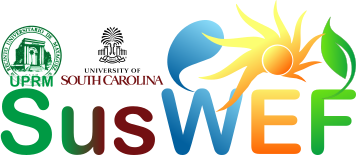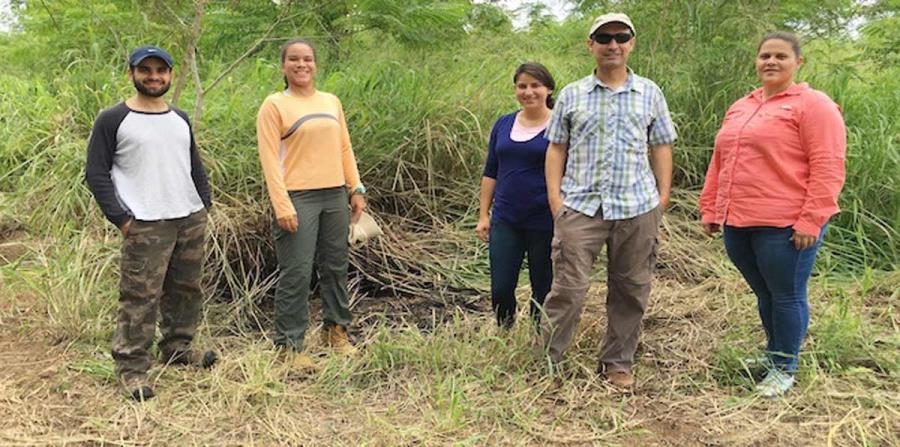
Overview:
The Center for a Sustainable Water Energy Food Nexus (SusWEF) will result in the formation of a strong, strategic and sustainable research and education partnership between the University of Puerto Rico-Mayaguez (UPRM) and the University of South Carolina (USC) that will work together in forging a path to finding solutions that are crucial for a global transition to sustainable use of water, energy, and food. Specifically, we will use an integrated approach of synergistic research to study:
1) the use of agricultural waste biomass for the sustainable production of lignin and simple carbohydrates, 2) the use of an integrated set of advanced computational and experimental tools to discover improved catalytic and porous adsorbent materials, 3) the development of selective and efficient catalytic materials and processes for carbohydrates conversion to value added chemicals including biodegradable polymer building-blocks, 4) the development of advanced separation technologies for water treatment, and 5) the use of soil conditioners for improving crop production and water retention. Our team assembles a collection of talented interjurisdictional collaborators that were selected based on the unique assets that they contribute to the partnership. The combination of unique expertise and access to facilities and advanced research techniques not readily available at the partner institution will allow the achievement of our goals.


